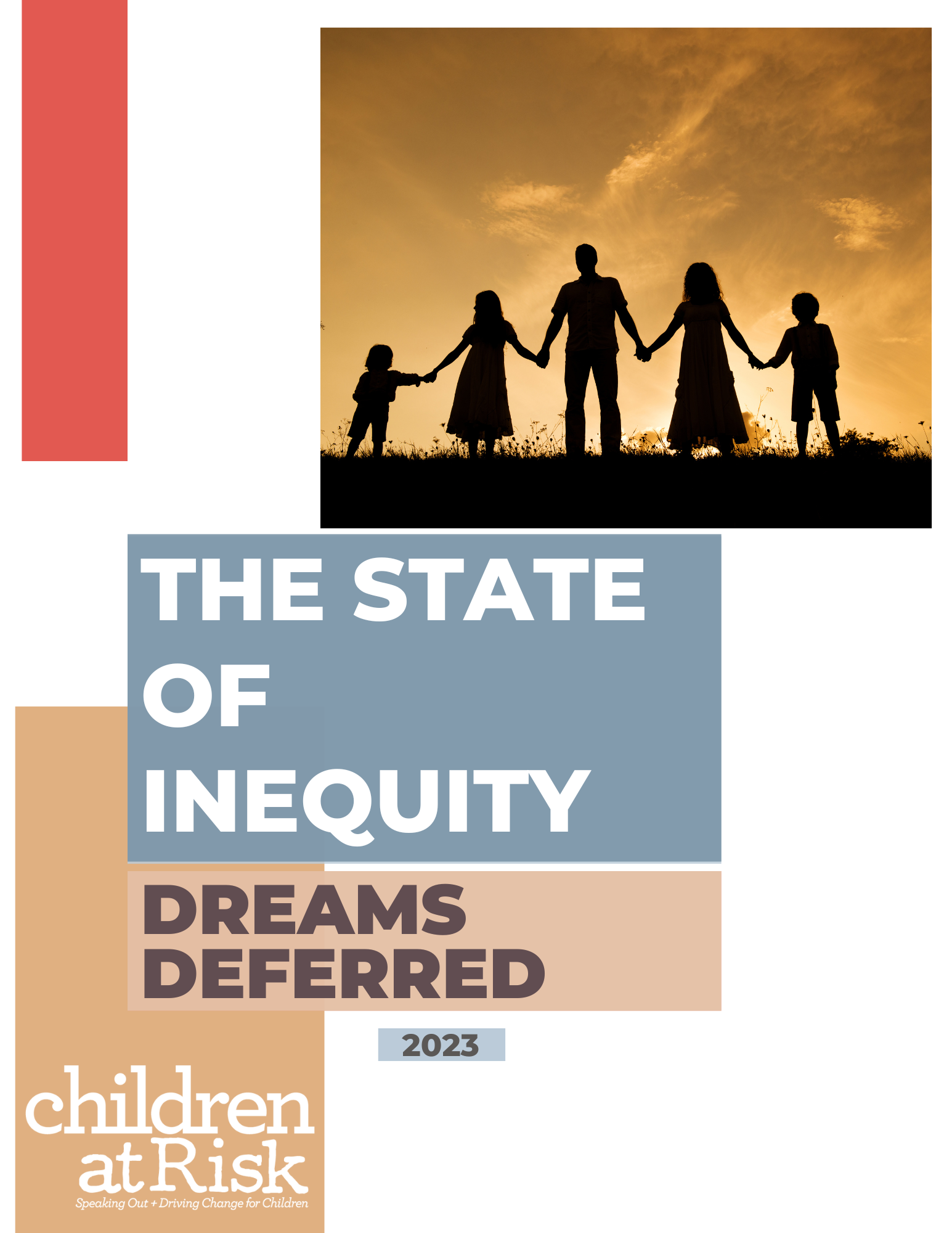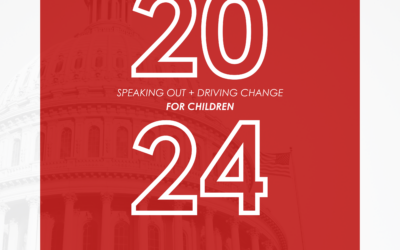The State of Inequity: Dreams Deferred
What happens to a dream deferred? Does it dry up like a raisin in the sun? Or does it explode? -Langston Hughes, 1951, Excerpt from the poem, Harlem (Dreams Deferred)
In The State of Inequity: Dreams Deferred, CHILDREN AT RISK explores our children’s access to good health, basic needs, quality education, and fair justice through an equity lens. While not exhaustive, this report provides a snapshot of areas for further study and improvement, so that every child in Texas has a clear path to achieving their dreams.
ACCESS TO GOOD HEALTH
Texas ranks in the 22nd percentile of states regarding access to and quality of care for Black and Latinx populations, according to the Commonwealth Fund. Families and children of color are more likely to suffer worse outcomes from treatment than whites, according to the study. While rates of anxiety, depression, and suicidal ideation are increasing for people of all races and ethnicities, there are notable differences across races. Black youth have had the highest average percent increase over time for suicide. ”The State of Inequity: Dreams Deferred” examines inequities in the following areas: Immunizations, Maternal Mortality, Mental Health, and Healthcare in the Borderlands.
ACCESS TO BASIC NEEDS
We know that children cannot learn or thrive when basic needs, such as food and shelter, are not met. In Texas, the likelihood of children lacking basic needs varies based on location, socioeconomic status, and the color of their skin. In Harris County for example, 25% of Black children and 18% of Hispanic children experience hunger, compared to 7% of white children. Additionally, lack of rest is a major barrier to a family’s success in life. For children of color, barriers to rest and resilience may include neighborhood and environmental factors like light and noise pollution, crime and sense of safety, access to green spaces and grocery stores, or even the adverse effects of structures. Our report identifies the following disparities in the acquisition of basic needs: Sleep, Food, Shelter, and School Nutrition.
ACCESS TO QUALITY EDUCATION
Receiving quality childcare and education from birth to high school is a major determinant in a child’s success. Roughly 1-in-10 Texas children (0-5) with working parents live in a childcare desert. Working parents who struggle to obtain quality care for their young children are limited in how they can provide for them. For many Texas school age kids, major hurdles, and inequalities inside and outside the classroom, keep them from gaining the knowledge and skills they need to meet life’s challenges. This report delves into the following factors that affect access to quality education: Necessity for Equitable Access, Lack of Access to Early Childhood Education, and Inequities in K-12.
ACCESS TO FAIR JUSTICE
Research shows that even one out-of-school suspension increases the likelihood that students will be held back in school, will not graduate on time, and will have future contact with the justice system. In Texas, Black girls experience the greatest gender disparity in discipline across racial groups. They are suspended at higher rates than their Black male counterparts through both one or more out-of-school. Finally, ”The State of Inequity: Dreams Deferred” will look at how children of color in Texas experience unfair justice in the following ways: School to Prison Pipeline, Disparities in School Discipline, and Discrimination Based on Appearance.
MORE LIKE THIS
2024 Annual Report
Dear Friends and Advocates, At CHILDREN AT RISK, we believe that every child deserves a fair shot at success—and we know that it takes all of us to make that happen. Whether you’re a policymaker, educator, donor, volunteer, or advocate, your...
Connecting Across the Lone Star State: Reflections from CHILDREN AT RISK’s Spring 2025 Texas Tour
This spring, CHILDREN AT RISK’s early childhood team had the incredible opportunity to connect with our early learning family across Texas! While virtual tours may not physically transport us to the stunning beauty of an East Texas wildflower patch...
Texas Child Care Honor Roll
Media Contacts: Morgan Gerri, 832.600.9354 Rashena Franklin 713.301.4577 Research shows that 90% of brain development occurs in the first five years of a child’s life. This period is foundational—what children learn, or don’t learn, during...

